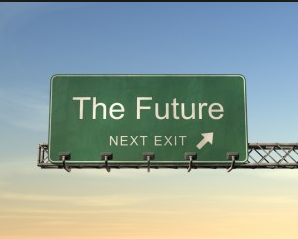 New research finds that “powerful” people are more likely to wait for future rewards, rather than rewards in the present, because they are more able to anticipate their future. I think this research illustrates the frequent flaws contained in academic research that utilizes artificial, experimental conditions, from which it draws broad conclusions. In this study, researchers from the Marshall School of Business at the University of Southern California conducted a series of four experiments, in which people were given “high-power” and “low-power” roles in a group activity. The study reports that “Afterwards, the participants were asked to make a series of choices between receiving $120 now or increasing amounts of money in one year. On average, low-power team workers were only willing to take the future reward if it was at least $88 more than the immediate one. High-power team managers, on the other hand, were willing to wait for future rewards that were only $52 more than the immediate one.”
New research finds that “powerful” people are more likely to wait for future rewards, rather than rewards in the present, because they are more able to anticipate their future. I think this research illustrates the frequent flaws contained in academic research that utilizes artificial, experimental conditions, from which it draws broad conclusions. In this study, researchers from the Marshall School of Business at the University of Southern California conducted a series of four experiments, in which people were given “high-power” and “low-power” roles in a group activity. The study reports that “Afterwards, the participants were asked to make a series of choices between receiving $120 now or increasing amounts of money in one year. On average, low-power team workers were only willing to take the future reward if it was at least $88 more than the immediate one. High-power team managers, on the other hand, were willing to wait for future rewards that were only $52 more than the immediate one.”
From that and the subsequent experiments, researchers concluded that “power holders may be willing to wait for the larger rewards because they feel more connected with their future selves, a consequence of experiencing less uncertainty about their futures along with an increased tendency to see the big picture.”
But here’s the problem with the research: It confuses “power” with a sense of perspective and larger vision of what one is aiming for in life. The latter builds confidence about what one chooses to go after short-term, vs. what one postpones for a larger goal. That is, in real life many people in power positions, as defined by the study — positions of authority and higher rank in a hierarchy, nevertheless fail to consider long-term consequences in their personal lives or career roles. For example, celebrities and sports stars who squander their money or talent. Or business leaders who led the country into near-economic collapse in recent years.
Aside from that fatal flaw in the researchers’ conclusions, I think there’s a larger issue: Their findings confuse “power” with the capacity to seek and strategize for long-term, long-range goals, by virtue of having created a larger vision for oneself that is, a picture of what one is aiming for, striving for, that embodies meaning and purpose. This can apply to personal life goals or to career and creative aspirations. In both situations, such a vision that “pulls” one towards contains a perspective that allows one to forego more immediate, short-term rewards or success, in the service of a long-range vision. That’s an overall mentality; a mixture of emotional attitudes and values different from having power over others in a role-related situation.
